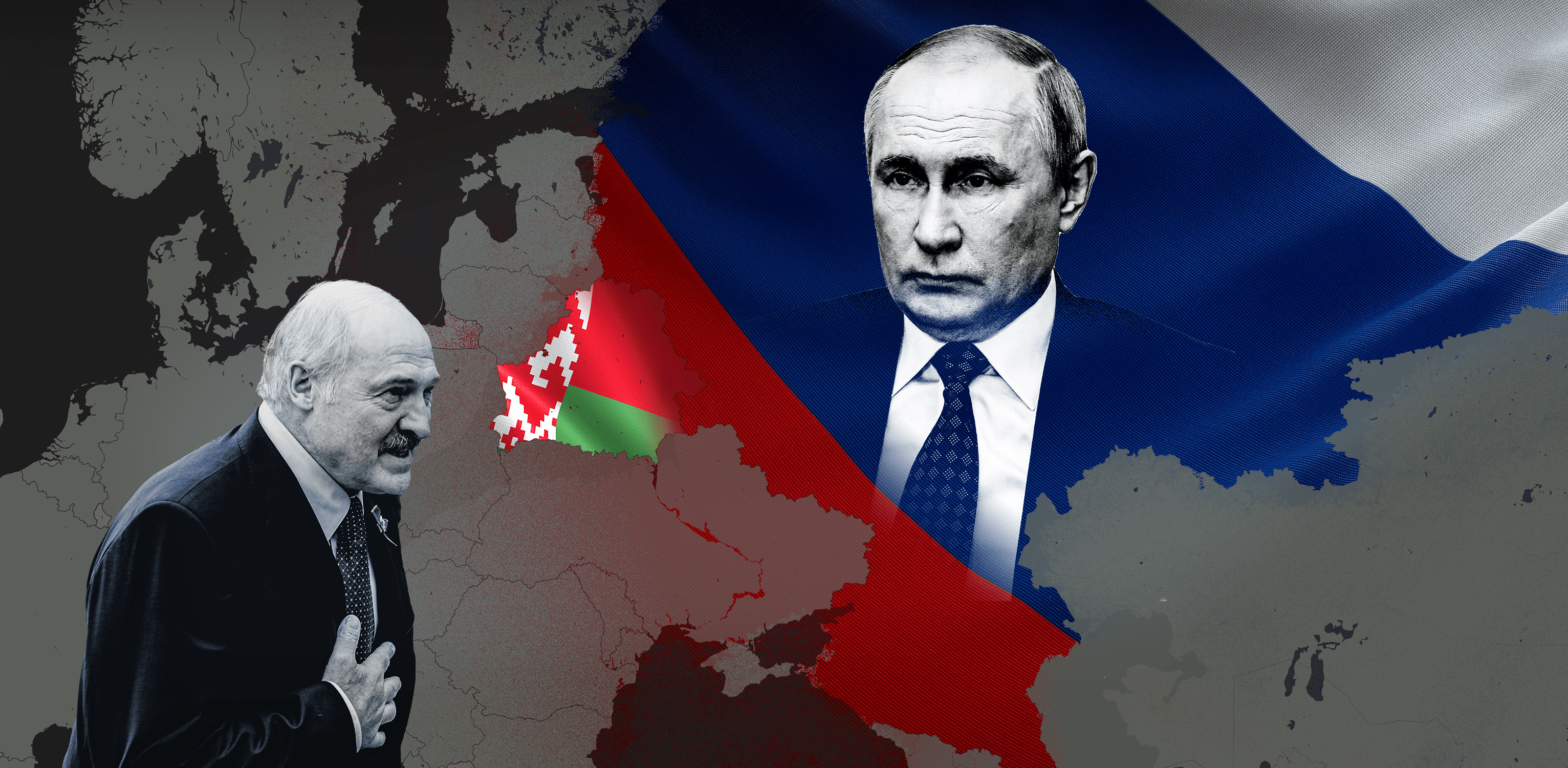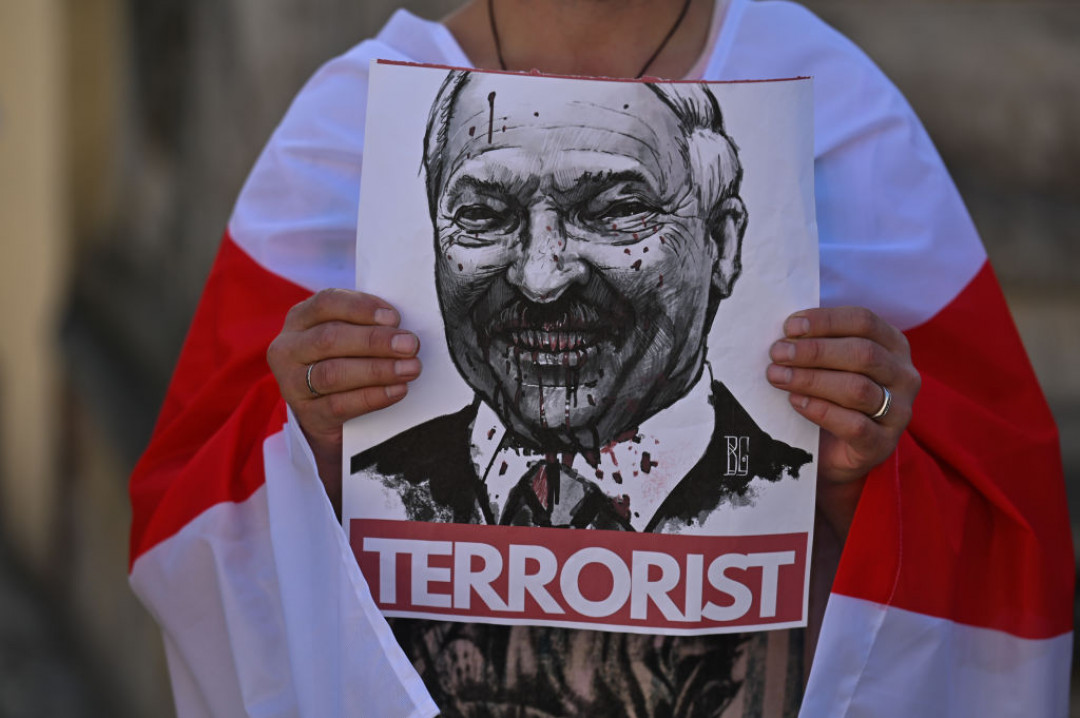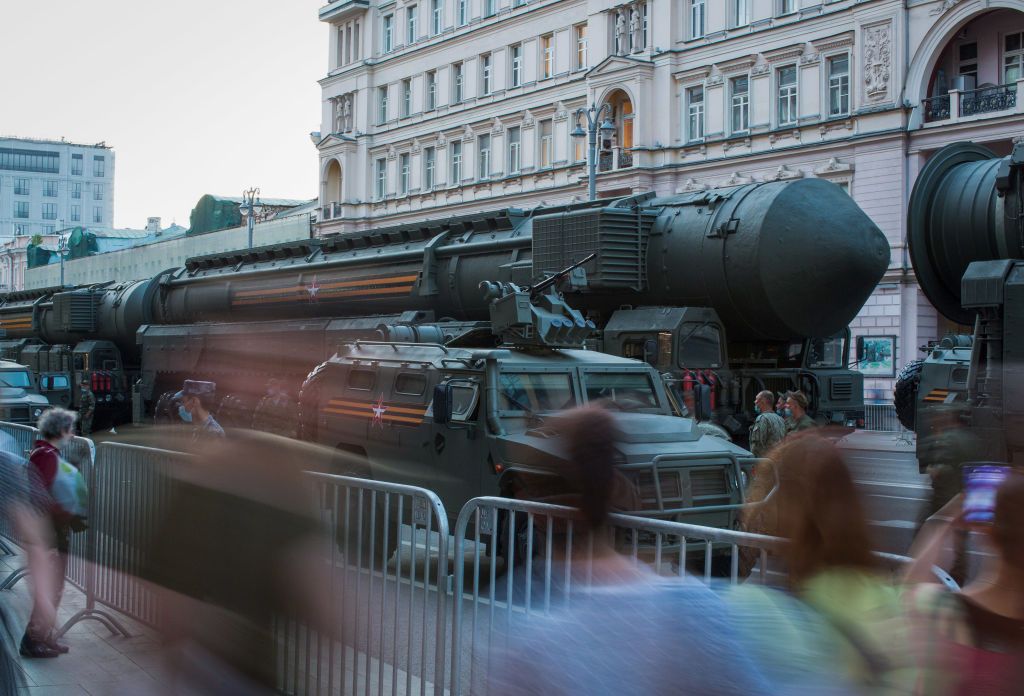Belarus Weekly: Lukashenko makes brief public appearance following rumors of his poor health

Belarusian authorities publish footage of dictator Alexander Lukashenko conducting work trips in an attempt to refute rumors of his poor health. His voice remains hoarse, his hand bandaged, just like at the Victory Day celebrations, after which he disappeared from the public eye.
The European Parliament issued a resolution calling for the immediate release of former presidential candidate Viktar Babaryka, imprisoned since 2020, whose whereabouts are unknown since his hospitalization at the end of April.
Belarus' Permanent Representative to the UN claims that the tactical nukes promised by Russia have yet to be deployed to Belarus.
Belarus imposes a ban on top officials, police, and those convicted of political crimes from traveling abroad. State and military officials can only leave with express permission from Lukashenko.
Lukashenko makes first public appearance following health rumors
Belarusian authorities released photos and a video of Belarusian dictator Alexander Lukashenko following his absence from several events that sparked speculations of his poor health.
The footage attempts to refute the rumors, purporting to show Lukashenko visiting an army control point and meeting with the governor of Russia's Vladimir Oblast, Alexander Avdeyev.
In the video, Lukashenko's voice is hoarse, and his hand is bandaged, however, he mentions recent events proving that the video is recent.
Lukashenko's swift departure from Victory Day celebrations in Moscow and Minsk on May 9 sparked rumors that he is seriously ill.
Reuters also noted that he looked "tired and a little unsteady on his feet, and a bandage was visible on his right hand… though he otherwise showed no obvious signs of being unwell."
Watchdog Belarusian Hajun said Lukashenko checked into a hospital near Minsk on May 13, during which time access to the clinic was reportedly closed off, and the roads to it were guarded by armed enforcers.
Lukashenko also didn't attend a new ceremony held in Minsk the next day, during which young people swore allegiance to the Belarusian flag.
Belarusian Prime Minister Roman Golovchenko issued a speech in his stead, sparking further speculations that the dictator is seriously ill.
Lukashenko's office has given no reason for his absence.
"For us, it means only one thing: We should be well prepared for every scenario," exiled Belarusian opposition leader Sviatlana Tsikhanouskaya said. "To turn Belarus on the path to democracy and to prevent Russia from interfering. We need the international community to be proactive and fast."
As per the Belarusian constitution, if Lukashenko is incapacitated and unable to perform his duties, his role would be passed to the speaker of the upper house of parliament, the Council of the Republic, until new elections are held.
The current speaker is Natalya Kochanova, Lukashenko's former chief of staff.
European Parliament urges release of former presidential candidate Babaryka
The European Parliament adopted a resolution on May 11 calling for the release of political prisoner Viktar Babaryka, who ran against Lukashenko during the 2020 Belarusian presidential election.
Parliament urges authorities in Belarus to cease the mistreatment of former presidential candidate Viktar Babaryka and other political prisoners and release them immediately and unconditionally," the press release said.
The European Parliament also called for those detained to have "access to proper medical assistance, lawyers, family, diplomats, and international organizations to assess their condition and provide aid."
Babaryka is currently serving a 14-year sentence for politically motivated charges.
Considered one of Lukashenko's primary political opponents during the last presidential election campaign, the move is widely considered an attempt to take Babaryka out of the presidential race.
Babaryka was reportedly hospitalized on April 27 with a collapsed lung and traces of severe beating.
Until his recent hospitalization, he served his prison sentence in one of Belarus' harshest prisons, rumored in numerous testimonies to witness beatings and torture of inmates.
While a spokesperson from the penal colony said on April 29 that Babaryka is "alive and well," no proof has been given. Belarusian media noted this week that he had not been seen since his hospitalization.
The European Union, Czech and French foreign ministries, and the U.S. State Department's Bureau of Democracy, Human Rights, and Labor Affairs have also expressed concerns over the situation and called Minsk to provide further information.
Belarusian UN representative: Russia has yet to place tactical nukes in Belarus
Russian tactical nuclear weapons have yet to be deployed to Belarus, the country's permanent representative to the UN, Valentin Rybakov, claimed on May 16.
"These announcements about deploying tactical nuclear weapons in the Republic of Belarus…are just announcements," Rybakov said during a UN Security Council-led discussion. "Nothing practical has been done."
On March 25, Russian President Vladimir Putin threatened to place tactical nuclear weapons in Belarus for alleged training purposes – the latest in a series of nuclear threats by the Kremlin against Ukraine and the West.
Three days later, Belarus' Foreign Ministry claimed the regime was "forced" to do so amid so-called "unprecedented political, economic, and informational pressure" from the U.S., U.K., EU members, and NATO allies.
NATO and the EU condemned the move, calling on Belarus not to go through with it.
EU's chief diplomat Josep Borrell said the decision is an "irresponsible escalation and threat to European security."
Belarus restricts travel abroad for top officials, police, those facing 'political charges'
A recently passed amendment prohibits Belarus' top officials, law enforcement, and those facing "political charges" from traveling abroad.
Made public on May 16, the ban also applies to those accused of disobeying the police and violating restrictions on public events. The country's KGB will be allowed to restrict people's departure for up to six months whose travel abroad "contradicts the country's national security."
As a result, high-ranking ministers, members of the KGB, military representatives, and other top officials will have to obtain special permission to leave the country. Restrictions will come into effect in six months.
OSCE report shows 'serious threat to the OSCE human dimension in Belarus'
The OSCE Office for Democratic Institutions and Human Rights (ODIHR) presented the report on systematic human rights violations and large-scale politically motivated repressions unfolding in Belarus since Nov. 5, 2020.
The report finds continuous attacks on the freedom of political rights and the democratic process, freedoms of assembly and association, the right to a fair trial, and the right to effective remedies.
OSCE found numerous instances of torture and other cruel, inhuman, or degrading treatment or punishment in Belarus.
OSCE rapporteur Hervé Ascensio noted that after the outbreak of Russia's full-scale war against Ukraine, repressions had been "particularly directed at those expressing their opposition to the war or their support for the Ukrainian people."
The Permanent Mission of Belarus to the OSCE labeled the report a "propaganda campaign to smear an unwanted state" and stated that its only result would be "to undermine the possibility of an early resumption of interstate dialogue."
The 1995 referendum that gave Lukashenko dictatorial powers
The Spotlight segment provides readers with the historical context of contemporary events in Belarus.
On May 4, 1995, Alexander Lukashenko's regime held a four-question referendum, whose results determined the future of Belarusian democracy.
The referendum asked:
- Should the Russian language be given equal status to that of the Belarusian?
- Should Soviet-inspired state symbols be reinstated (excluding the hammer and sickle)?
- Do you approve of Lukashenko's policy on economic integration with Russia?
- Should the president of the republic have the right to dissolve the parliament?
Belarus' parliament overwhelmingly opposed the referendum.
Several lawmakers even locked themselves in one of the institution's buildings and announced a hunger strike, after which Lukashenko's riot police forcibly removed them from the premises.
According to Belarus' Central Election Commission, the referendum resulted in an overwhelming "yes" for every question.
To prove a point, a member of Lukashenko's administration tore up the pre-existing state flag hanging from the presidential residence and burned it – even before the results were announced.
The questions were significant for several reasons:
First, giving Lukashenko the right to dissolve the parliament strengthened his grip on the country, giving him the needed leverage to crack down on his opponents.
Second, the decision to pursue further economic integration with Russia increased the speed with which Belarusian was backsliding from its newfound independence back into Russia's orbit.
Third, granting the Russian language equal status as Belarusian was a serious blow to Belarus' distinct culture, signaling renewed repression against the language and culture for many years to come.
The abolished white-red-white flag is now a symbol of resistance by those who oppose Lukashenko's regime.
The Organization for Security and Co-operation in Europe (OSCE) dismissed the referendum, saying Belarusian authorities "conducted extensive efforts to convince the voters to participate in the referendum."
Most official information appeared to encourage the electorate to vote in favor of all referendum questions," the OSCE report continued, adding that cases of multiple voting and violations of ballot secrecy were also observed.













